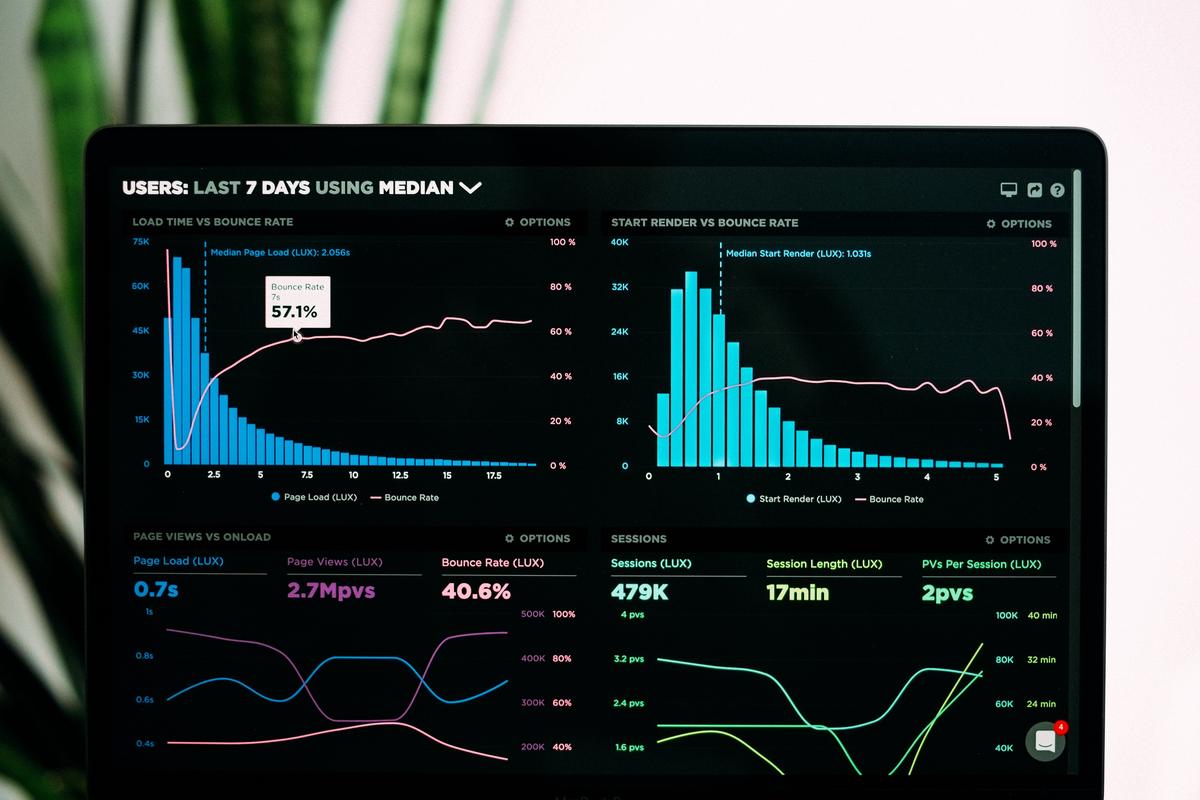In the sphere of modern marketing where data is increasingly regarded as a goldmine, understanding and maximizing the use of Business Intelligence (BI) has never been more crucial. This technology forms the bedrock of informed decision making, enabling businesses to collect, analyze, and harness their data for strategic marketing initiatives. From predicting trends to personalizing campaigns, BI holds the key to unlocking a wealth of comprehensive insights for marketers. This discourse seeks to unearth the role of business intelligence in marketing, its practical applications, the benefits it holds as well as the challenges it may pose, and ultimately, the exciting future prospects of BI as it intersects with emerging technologies.
Understanding Business Intelligence and Its Role in Marketing
Understanding Business Intelligence
Business Intelligence (BI) is a technological process that blends data mining, data processing, data analysis, data visualizations, and reporting to collect information that aids decision-making in businesses. Primarily, BI incorporates software and various services that transform raw data into meaningful information, providing valuable business insights.
BI empowers businesses to make data-driven decisions, which are objectively grounded in analyzed data, instead of relying on intuition or experience. It offers businesses a real view of their performance promptly, allowing them to rectify their strategies as required.
The Role of Business Intelligence in Marketing
The importance of BI in marketing cannot be overstated. Leveraging BI can significantly boost the efficiency and effectiveness of marketing efforts, resulting in higher returns on investment. By implementing and utilizing BI software and tools, firms can gather, analyze, and interpret a great deal of customer data. This data can provide insights into customer behavior, purchasing patterns, preferences, historical trends, and other useful metrics.
Marketers can utilize this wealth of information to make informed strategic decisions, optimize marketing campaigns, identify new market opportunities, or foresee possible challenges. From the allocation of marketing budget to advanced customer segmentation, to monitoring and analyzing marketing campaign performance, BI can play a significant role in achieving marketing goals and objectives.
Methods and Techniques of Business Intelligence in Marketing
BI provides several methods and techniques to analyze and interpret data, including:
- Data Mining: This process helps marketers analyze and predict customer behavior. It involves extracting patterns and trends from large data sets to inform future marketing strategies.
- Data Visualization: Tools such as charts, graphs, and heat maps make complex data insights more digestible. Marketers can identify trends and correlations at a glance, leading to quicker and more efficient decision-making.
- Reporting and Performance Metrics: By regularly tracking and reporting on marketing KPIs, BI helps marketers measure their success and improve performance.
- Predictive Analytics: By leveraging data, statistical algorithms, and machine learning techniques, predictive analytics can accurately forecast future customer actions, trends, and marketing outcomes.
How BI Improves Decision-Making Processes in Marketing
BI assists in making informed judgments in marketing. It confirms marketing strategies with accurate, real-time data to ensure the effectiveness of campaigns. It also eliminates the guesswork in decision-making, boosts the marketing return on investment, saves time, enables businesses to stay competitive, and helps identify new opportunities for growth.
BI tools turn volumes of data into comprehensible information, helping marketers identify customer preferences, market trends, and marketing strategies’ effectiveness. By using BI, marketers can enhance customer segmentation, personalization efforts, forecast marketing ROI, and enhance campaign effectiveness.
Business Intelligence (BI) plays a crucial role in marketing, offering businesses significant benefits and opportunities for improved decision-making and strategic planning.

Application of Business Intelligence in Marketing
Diving Deeper into Business Intelligence in Marketing
Simply put, Business Intelligence is a technology-driven process designed for collecting, integrating, analyzing, and presenting a company’s raw data. It’s a process that transforms this raw data into something much more useful – meaningful information that aids business analysis and strategic decision-making. In the world of marketing, BI provides businesses with crucial insights about customer behavior, market trends, and operational efficiency. These insights are then leveraged to fine-tune marketing strategies and drive business growth.
Successful Use of BI Tools in Marketing: Case Studies
Leading corporations worldwide have successfully harnessed the power of BI tools to enhance their marketing strategies, streamline sales, and forecast future trends. Here are a few examples:
-
Amazon: This e-commerce multinational giant uses predictive analysis, a part of BI, to analyze past purchase history, browsing log, customer demographics, and social media trends to personalize product recommendations for customers.
-
Netflix: The popular entertainment service leverages BI to analyze customer viewing patterns. It uses this data to craft personalized recommendations, prioritize its content generation strategy, and strategize its marketing efforts.
-
Starbucks: This popular coffee chain uses BI tools to decode customer preference data collected from their loyalty program. It then uses these insights to tailor their marketing strategies, offer personalized deals, and generate region-specific menus.
BI for Tailoring Marketing Campaigns
BI tools aggregate and analyze multiple data such as customer purchase history, browsing behavior, and demographic data to generate personalized insights. These insights enable corporations to personalize their marketing messages and target them to specific customer groups. This personalized marketing leads to better customer engagement, increased ROI, and improved customer loyalty.
Application of BI in Sales Optimization
BI tools play a significant role in sales optimization. They provide insights into sales patterns, customer preferences, and market trends. Companies can leverage this data to strategize product offerings, pricing strategy, and promotional activities. It also enables sales forecasting, competition analysis, and performance tracking, which is crucial for sales optimization.
Identifying Trends with BI
Using advanced analytics, BI tools can identify market trends, consumer behavior changes, and industry shifts. It enables companies to understand the current market scenario and predict future trends, and accordingly adapt their business strategies.
Predicting Customer Behavior with Business Intelligence
Predictive analytics, a subset of BI, uses past data to forecast future events. In marketing, it can predict customer buying behavior based on their historical data and current market trends. This information can help in customer segmentation, managing customer relationships, and crafting tailored marketing campaigns.
Embracing BI in Marketing: The New Frontier
Business Intelligence (BI) in marketing empowers companies to leverage data in decision-making, predict market changes, and deliver personalized customer experiences. For businesses seeking to remain at the cutting edge of their industries, a solid grasp and usage of BI are essential.

Benefits and Challenges of Business Intelligence Marketing
Delving into the Concept of Business Intelligence Marketing
Positioned at the intersection of technology and marketing, Business Intelligence Marketing is a sophisticated framework that harnesses the power of data collection, amalgamation, analysis, and visualization to guide crucial business decisions and foster growth. The ultimate aim is to convert massive volumes of raw data into valuable insights, enabling organizations to comprehend their market dynamics deeply, design fitting marketing strategies, and maximize the effectiveness of their marketing campaigns.
Benefits of Business Intelligence in Marketing
There are numerous benefits associated with incorporating Business Intelligence into marketing operations. The following are the main advantages:
- Improved Decision-making Process
- Increased Revenue
- Improved Customer Engagement
- Streamlined Marketing Processes
The most prominent benefit of BI Marketing is its ability to aid businesses in the decision-making process. By collecting and interpreting data from various sources, businesses can gain detailed insights into customer behaviors, preferences, and needs. This information can significantly guide decisions on product development, pricing strategies, and customer engagement.
Data insights from BI can foster enhanced understanding of market trends and customer preferences. These insights empower businesses to craft personalized offers and campaigns that resonate with their target market, leading to increased sales and, subsequently, increased revenue.
By leveraging bi analytics, businesses can identify crucial touchpoints for customer engagement. Understanding these touchpoints can help in the formulation of effective strategies to engage with customers more effectively, resulting in increased customer satisfaction and loyalty.
BI systems can automate several tasks within the marketing department, including tracking campaign performance, measuring ROI, and analyzing customer feedback. Automating these processes means freeing up time for the marketing team to focus more on creative planning and strategic tasks.
Overcoming the Roadblocks of Business Intelligence Marketing
Business Intelligence (BI) can transform marketing outcomes, however, certain obstacles might stand in the way of effective implementation. Key among these are:
- Data Integration
- Data Quality
- Technical Skills Deficiency
Blending different data sources can be a tricky task, especially when dealing with diverse sources. This necessitates a solid BI tool that can process varying data types and sources effortlessly.
The overall efficiency of BI Marketing is heavily reliant on the quality of the data analyzed. Inaccurate, insufficient, or outdated data is a common issue in businesses and can affect the insights generated.
The execution and management of complex BI tools usually demand specialized technical skills. The absence of these skills among existing staff is another roadblock businesses may encounter.
Tactics to Tackle the Roadblocks
- Commit Resources to Reliable Tools and Skilled Professionals
- Regular Data Refreshment
- Workforce Up-skilling
Devoting resources to high-grade BI tools and recruiting capable professionals are fundamental measures. High-quality tools ensure smooth data integration, and skilled professionals have the necessary know-how to utilize the tools and interpret the findings.
Companies should create systems for the regular cleaning, updating, and expansion of their data. This positively affects the accuracy and relevance of the data employed in BI Marketing.
Training initiatives aimed at equipping the workforce with BI tool proficiency should be adopted. This empowers staff to effectively use this technology, optimizing BI Marketing initiatives.

Photo by lukechesser on Unsplash
Future of Business Intelligence in Marketing
The Advent of AI and Machine Learning in Business Intelligence
Artificial Intelligence (AI) and Machine Learning (ML) have shed a new light on various sectors, and their fusion with Business Intelligence is predicted to launch advanced marketing intelligence solutions. The impressive ability of AI and ML to consume, learn, and respond to data patterns is altering how businesses gather, analyze, and apply BI.
The intelligence of these algorithms allows continuous growth by learning from data, thereby boosting their efficiency over time. This feature helps companies discover concealed patterns and evolving trends in their data, providing a fresh perspective to business decision-making processes. Additionally, the abilities to predict outcomes and make automated decisions enable businesses to forecast customer behavior and successfully meet future demands.
Incorporating AI/ML into existing BI tools aids marketers in making more insightful decisions, refining customer segmentation, and formulating customized marketing campaigns. AI-enhanced BI contributes to predictive analytics, client profiling, customer behavior analysis, and competitive intelligence, just to name a few. As such, it provides a comprehensive understanding of the whole market ecosystem.
Future Trends in Business Intelligence
As businesses progressively acknowledge the dynamism of data, the future of BI in marketing looks promising. With the evolution of technology and data analytics, several trends are emerging to support more sophisticated marketing strategies, which include:
-
Data Quality Management (DQM): Imperative to every BI initiative, DQM is attracting significant attention. Businesses are investing in systems and expertise to curate, organize, and sanitize their data. Pristine and reliable data is the cornerstone of effective BI, leading to accurate insights and prudent decision-making.
-
Data Democratization: This trend encapsulates a shift towards making data accessible for everyone within the business. Democratized data boosts transparency, collaboration, and empowers employees to utilize data effectively towards achieving business objectives.
-
Real-time BI: With businesses operating in an ever-changing marketplace, real-time BI is set to become a game-changer. It provides marketers with up-to-the-minute insights, allowing them to respond swiftly to market changes and gain a competitive edge.
-
Augmented Reality and Virtual Reality in BI: AR and VR are set to revolutionize the way marketers visualize and understand their data. They offer immersive and interactive experiences, which helps to gain deep insights into complex datasets.
-
Advanced Data Privacy Regulations: With the surge in data usage, regulations like the General Data Protection Regulation (GDPR) are changing how businesses handle their customer data. Therefore, businesses will need to adapt to these regulations while utilizing BI tools.
In conclusion, the merger of AI and machine learning with business intelligence is a match made for the digital age. As inevitable enablers of the future, they will continue to shape the landscape of marketing intelligence by providing comprehensive insights and aiding data-driven decision-making. As a result, this will catalyze the rise of more efficient, effective, and personalized marketing campaigns.

As we traverse further into the age of digital marketing, business intelligence continues to evolve, incorporating more advanced technologies like AI and machine learning into its fold. This integration, expected to yield more powerful, nuanced and precise marketing intelligence solutions, signals exciting future prospects for marketers. On this trajectory, the marketing landscape will see transformations like never before, making the mastery of BI an invaluable asset for businesses. Amid the potential challenges that may arise, solutions and strategies that mitigate them are within reach, further advocating for the necessity of BI in marketing. This underscores the crucial role that BI will continue to play in shaping successful marketing endeavors, today and in the future.

Leave a Reply